Pavlo Kurylenko embarked on his path as a military man at the age of 24 years old, following the Maidan events in Kyiv in 2013-14. “At the height of the Revolution of Dignity, they wanted to deduct 300 UAH from my salary for a portrait of Yanukovych,” he recalls. This became a trigger and another signal: we must stand up for the defense of Ukraine. Then followed the battles for Sloviansk and the repulsion of the offensive from Girkin’s mercenaries, battles for the Donetsk airport and numerous clashes on the eastern and southern fronts. Pavlo has passed the path from a platoon leader to the commander of the 210th separate assault regiment. In this interview of the series “Victory Commanders” Ukrinform hosted Mr Kurylenko to talk about the combat path he has passed, the common mistakes made by unit leaders, the heroic deeds of our defenders, about “what does it matter”, what language to speak in the army, the activities of recruitment and enlistment bodies, and Russia’s information war and psychological influence on Ukraine.
- You volunteered to stand up for the defense of Ukraine in 2014. What motivated you to make this choice?
- In 2013, the events on the Maidan escalated so rapidly, revealing the already visible and even the latent challenges facing the country, so the society (and I in particular) began to clearly see the bad direction we were moving in, were not moving by ourselves actually, but were pulled in. And it was only through this revolution, unfortunately, due to the right messages that the revolution carried, that our path began to curve round to the right direction, after that shifty stuff began in Crimea and it was ultimately illegally annexed by Russia. For me back then, I didn’t fully realize what was going on yet, but understood it was not an irreversible moment, when the “little green men” were running around, everyone knew who they were, who gave them orders, but everyone were pretending they didn’t know. I realized that decisive action was needed, and began the search for like-minded people. As it turned out, in our country, there are lots of strong-willed men who are ready to do cardinal things for the good of the country.
On April 12, 2014, Girkin and his men took Sloviansk – it was a direct terrorist act against our country. This moment was a turning point for me, I realized that it was time for me to take up arms. I started looking for units that were being formed at the time. It was later that they began to be referred to as “volunteer units”, “volunteer formationes”, but back then it was just an opportunity for me to find like-minded people and officially join the ranks of the Armed Forces and defend the Motherland. During this stage of my life, I was joking about my initial steps on the path to volunteer service in the Armed Forces, saying “I went to fight for 300 hryvnias”.
- Why 300?
- Because before joining the military I was employed at the Desnyansky District tax inspectorate inn Kyiv, in auditing department. A tax officer was earning a meager salary back then. They hired young professionals who wanted to do something good, but young people were broken by the system. The system was breaking them not through corruption, but through bad attitude towards employees. And when the Maidan events were already at full swing, barricades were erected, the police were trying to break them through with armored personnel carriers, the surrealism inside the state apparatus continued: an instruction came from a senior head of Ukraine’s taxation service, ordering that each tax officer should place a portrait of President Yanukovych on his workstation, and 300 hryvnias should be deducted from everyone's salary for this portrait. I said that I would not do such a thing. And I believe that it was because of such moments, those 300 hryvnias for the portrait of Yanukovych on my workstation during the Maidan, that I went to war.
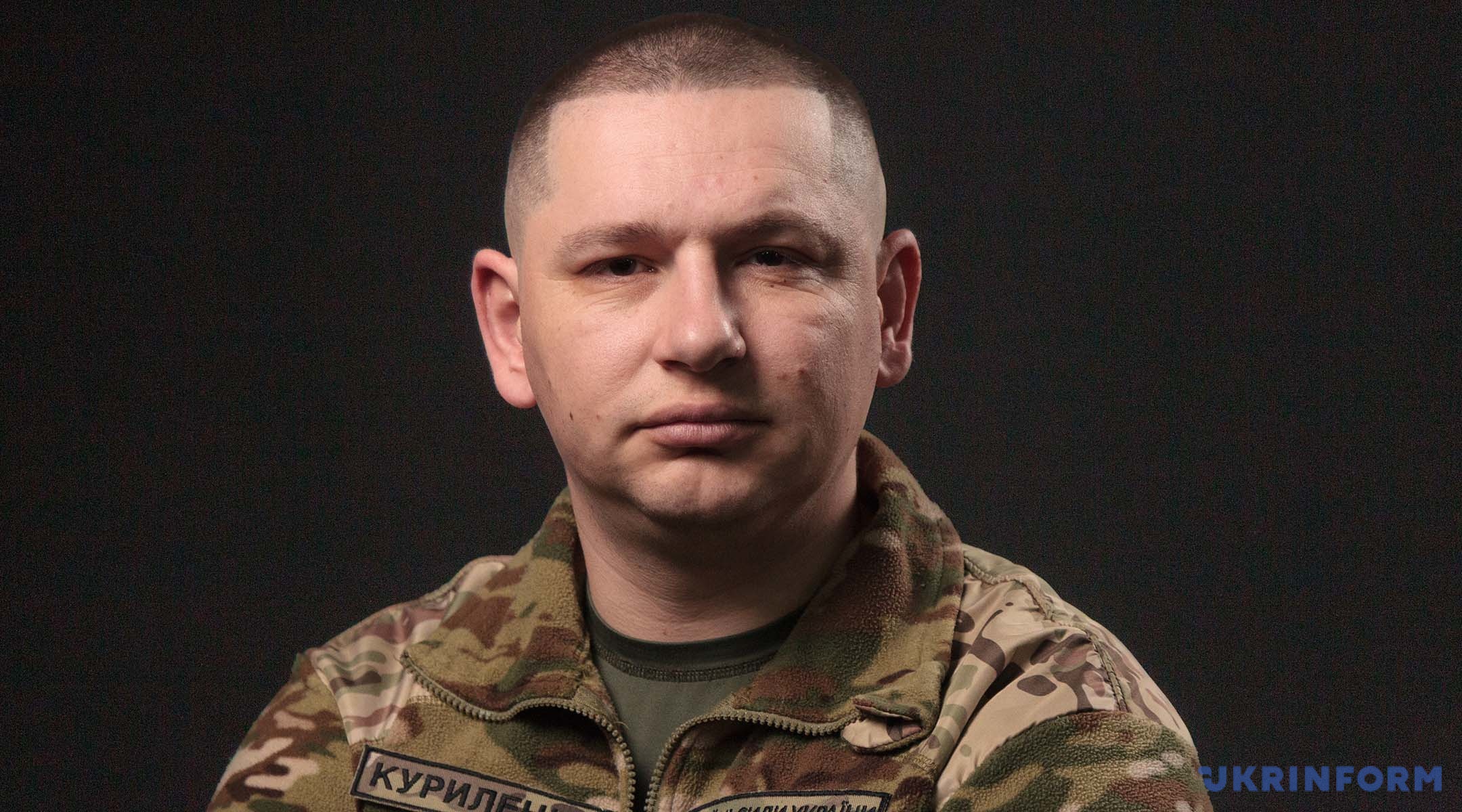
- How old were you back then?
- 24. Now I'm 34, and looking at myself as I was ten years ago I understand how young I was and how much I didn't know.
- Your experience includes the defense of Donetsk airport, when you were 26 already?
- No, I was 25 when we withdrew from Donetsk airport, I fought there when I was 24 years old.
- And you were already in command, despite not having combat experience yet, just graduated from a military training department at a civilian university. How did you manage to take on the responsibility and work making your unit into a combat team?
- Is it difficult to command people? No, if you understand them. I communicate frankly with many units, it seems to me that, in the units of the Armed Forces of Ukraine, the biggest mistake made is that platoon commanders at times “break away” from personnel in their platoons. From the first days, we made a rule for ourselves that I am just like any other soldier, the only difference being that I am managing the platoon's interaction with the higher commander, and therefore I am the sole recipient of all information and I make the final decision. My leadership is built on this basis.
- Do you organize work in the unit in the same way as it was back then or in a different way?
- Previously, we would use servicemen according to their knowledge and capabilities in particular areas. But now I have learned to "create those who know how to create." Let me explain: when I want to develop some new specialization in my regiment, I do not take it into manual mode, because it will break, and at one point I will be loaded with a little bit different work; if I relax control, everything will fall apart. Because where there is no control, each mechanism requires control and development.
I am looking for those people who hold the potential to create, who see an object not as it is, but as they would like it to be. This is precisely what makes the algorithm of development. I see a process, let it be issues with insufficient rehabilitation treatment provided to my personnel. Servicemen go for treatment, for rehabilitation treatment for concussions, injuries, or stress disorders. Rehabilitation centers are working according to algorithms of their own. This algorithm covers either 14 or 21 days of therapy. After 21 days, the serviceman returns to his company, to a separate platoon, joins other servicemen to continue performing combat mission together with them. I am not sure that this is effective with my unit, because we are stormtroopers, and so my servicemen are subject to very high stress levels. They are supposed not just to hold positions, but also to go out of their positions, reach and seize someone else's positions, neutralize the enemy, gain a foothold there, and hand over these positions, and also – where you are not replaced -- to cross over your fatigue, accept the defensive lines and hold on until you are replaced, so that you can get out, recover and continue to storm.
The psychological stress is extremely high, and I want to create a buffer zone for the rehabilitation of these servicemen. That is, when my soldier returns from a rehabilitation center, after conversations with a psychologist, a doctor, a physiotherapist, after they conduct tests to see the areas where he has not yet fully recovered, and provide him with appropriate additional treatment to make us sure he is ready to return to his unit and do his job. To ensure this all works, I appoint a senior who should draw up and present me a draft of project development plan.
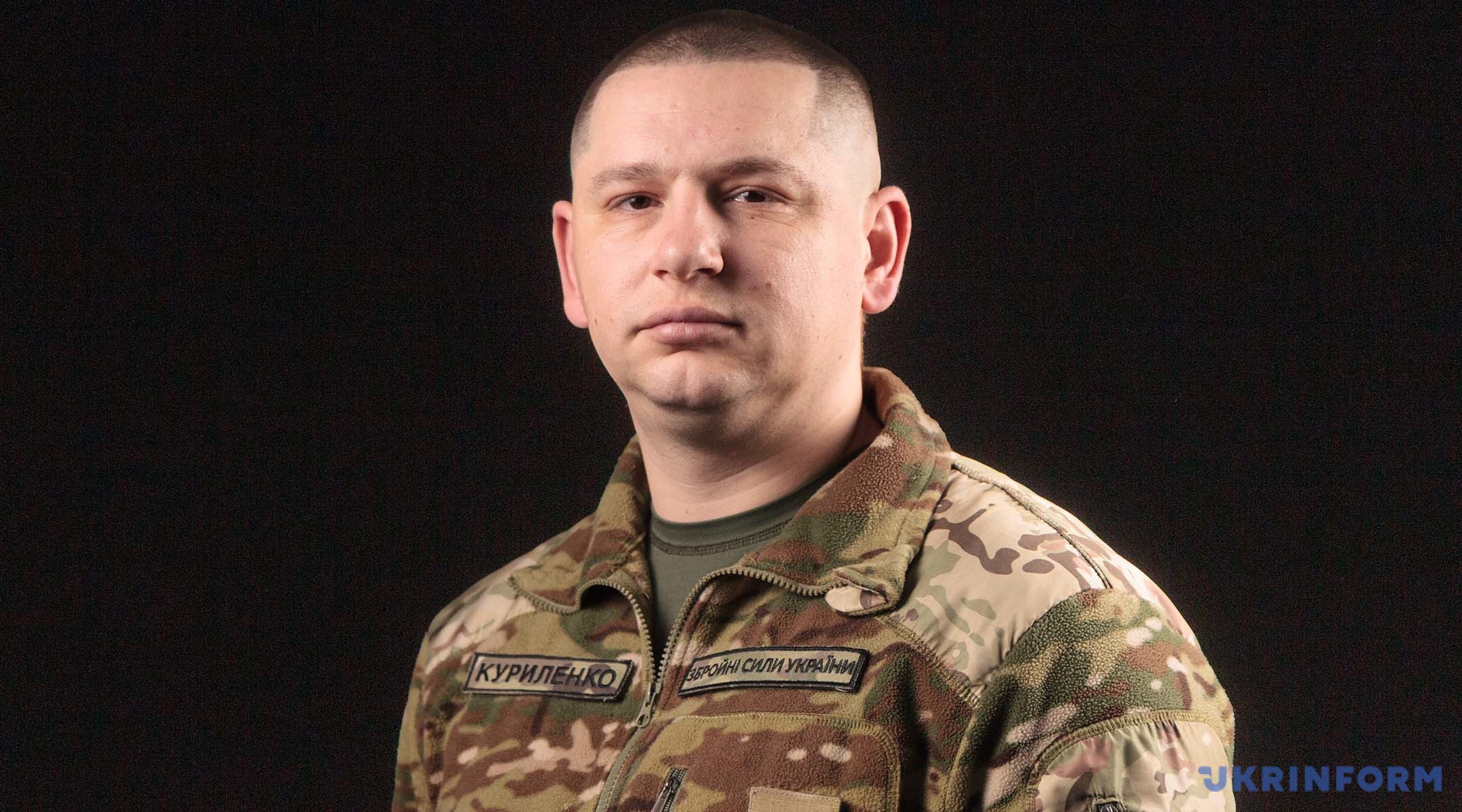
- Which of the at battles of the Great War are most memorable to you?
- There are so many of them, these battles. I will tell you about the heroic deeds of my soldiers. The summer of 2023 began with a counteroffensive. At that time, I had a mixed company performing combat missions under my command. On the very first night of the counteroffensive operation, two platoons were sent to train the guys, to reinforce those units. And it was due to the three companies that we were able to advance 9.5 kilometers deep into enemy defenses within a span of just four days.
We had a heroic moment like this: a soldier and his comrade fly into an enemy position. The enemy got scared and starts to run away. This soldier is chasing him in an attempt to shoot him down. They run through another enemy position - and he does not stop until he reaches the third enemy position. By the way, he caught up with someone, shot him, and he stops and cannot understand where he is. He looks around the forest line, comes out, says: pull up, the position is taken. They told him: go back, we won't have time to gain ground. And it ultimately turned out that he alone took two positions, not expecting it, just catching up. And the enemy soldier ran through own positions and, on the instinct of panic, pulled those with him, and they all ran away.
- Which of the directions were most difficult for you?
- There was never such a thing that we entered a direction and had a month’s time to calmly settle on positions. No way. You enter and immediately go storming, occupying, trying to halt enemy’s advances. The directions were difficult ones. But unfortunately, today, like a year ago, like two years ago, such difficult directions are numerous.
- What do your comrades mean to you? What are you ready to do for your people?
- I am ready to do anything for my people.
- Were there such situations?
- Yes. There was a situation where the unit was fearful of entering a position. I knew it was well entrenched, but difficult (there is no perfect position, it always needs to be developed, improved, and laid). The soldiers flew into the position, saw that the position was difficult, and moved to where the trenches were a little bit better. I understand that now the orcs will come in and start developing this position. And I will have to recapture two more meters of land, which can be simply held instead of being recaptured. So I and a driver drove into a forest line, then I left him alone (I was angry like a dragon). I put on a bulletproof vest, took an assault rifle but didn’t take a helmet. I arrived at the position satisfied, I said: let's go. - No, commander, it is nightmare there... Well, I wished them good health, took one soldier to carry a tube grenade launcher. That's to say, I'm going to kill the orcs. I realized I didn't take tube launched grenades, just under-barrel launched ones. So I'm walking, there are 100 meters left to the orcs, and they are already entering our positions. I take up a firing position and start firing. I hear someone coming from behind, I changed position, thinking that these were the orcs going around in a group, they would start to fall here. I looked around and saw familiar silhouettes. Eight people pulled up, and with them we had recaptured the company stronghold, occupied it, and entrenched ourselves.
- Your unit has recently been expanded to a regiment. How did you build this system so that the regiment worked effectively? You have already told us some details about the approach you use to management. Can you add something?
- For a commander, the hardest thing is always to realize the extent. There was a person who helped us, helped me get familiar with cool specialists in this area. The most important thing is to “use” people appropriately. To show them how they can get a kick out of service, wake up every day and want to do something else, know that no one limits their imagination if it is for the good of the unit and Ukraine.
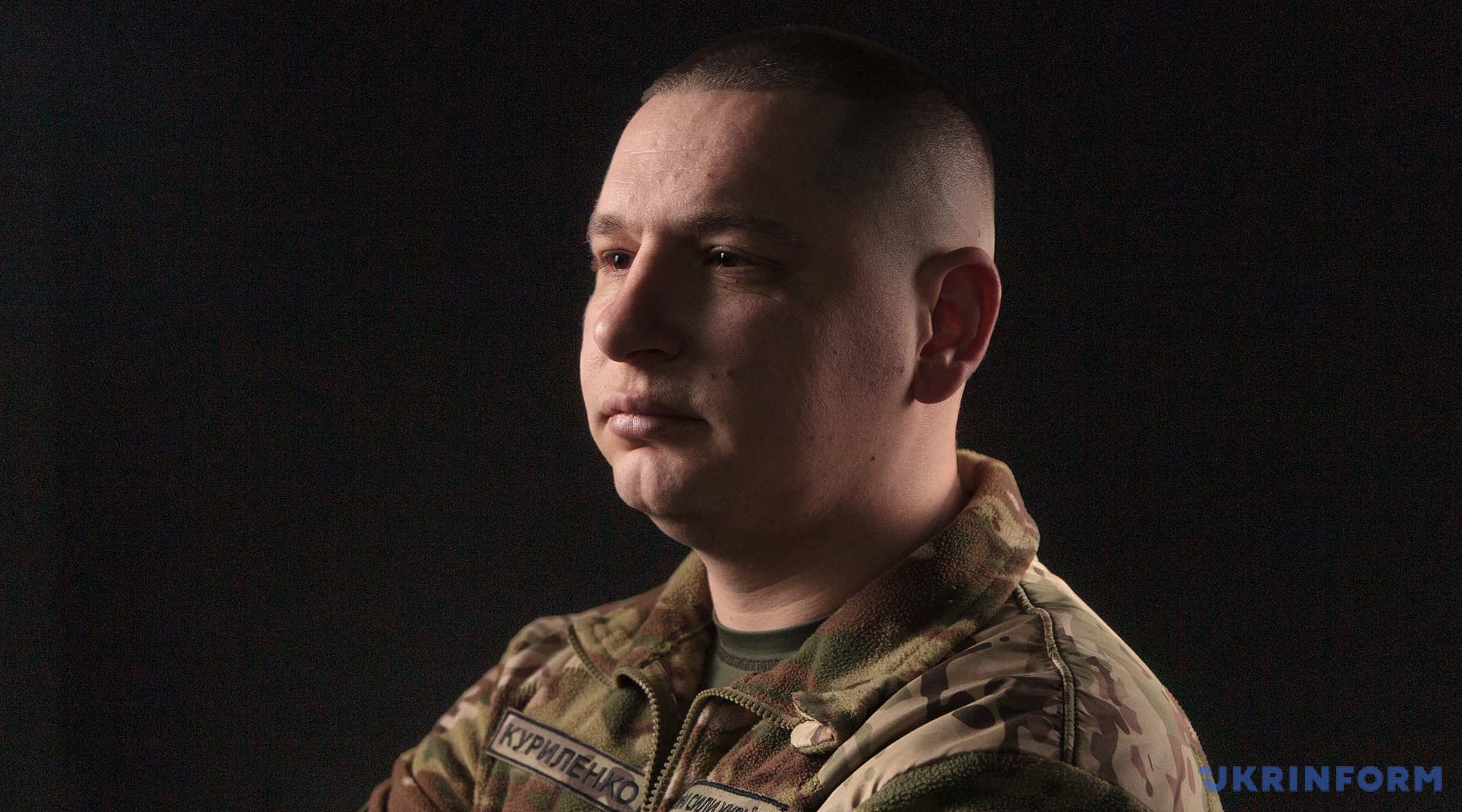
- You expanded as early as at the beginning of this year. What are the results of these changes?
- My intelligence subunit has been reformatted. I devoted five years of my life to service in special operations forces, and so and I know something about intelligence gathering and reconnaissance. And in the regiment, there is room to run around to create cool units such as electronic and signal intelligence, long-range reconnaissance, technical reconnaissance. And now I have these projects implemented. The guys are already trained. We have raised the training of drone operator crews to a whole new level. Select the people, bring them together, identify a leader among them, give them the opportunity to develop and grow - and they will bring results on the battlefield.
- You said that you are a little bit proficient in intelligence gathering and reconnaissance, a little bit in artillery. What else did we miss about you?
- I am sure that someone who has served in military ranks for 10 years knows how to work with everything, at least is generally knowledgeable in lots of different fields. There are just some fields where one is cool specialist, and others where he still needs to consult. Technology, development, this kind of things, you know. How many fields of expertise this war has wiped out! Artillery reconnaissance and observation! Do you know what artillery reconnaissance and observation is? It used to be like that: you have a mortar battery, there are three mortars, and they are shooting at the enemy. And in order to see the accuracy of the hits, you put your soldier (it is cool if there are high-rise buildings, a built-up area) on a high-rise building, he looks from there through binoculars and says: left, right. And most of the time you spend making a "nest" for him in a tree. He is sitting on that tree like a kite, and from there he says: well, it seems that way. And that was the job the person was doing. An artillery reconnaissance team was made of two or three people who took turns sitting at the highest point and from there tried to peer out where our mortar rounds were flying. And everything flies in, in response. And you are sitting in the “nest” watching mortar rounds exploding beneath you, and Grad rockets falling nearby. And you can’t get out, because you’ll fall down. There is no such field of expertise anymore, drones have replaced it. There is no such thing left as infantry reconnaissance and observation. Infantry’s role is vital, just like the role of drones, the remainder is done with fire support. Fire support, everything except infantry, is behind the back. Today, technical and electronic/signal intelligence are the only means of observation and reconnaissance left. Technical reconnaissance can be done by drones, other specialized means, means of electronic/signal intelligence.
- What can you say about the development of technologies and UAVs?
- Drone operators come to me and say: Commander, there is a project, tomorrow a machine gun on a vehicle will go out to shoot down all the orcs, and two more vehicles will be parked on the side, loaded with land mines. If the enemy tries to fly in on armored personnel carriers, we will blow them up on the move. – I am standing there, thinking like: we’ll use this once, and the orcs will do the same tomorrow. On the battlefield, an infantryman has only two hours to work: one hour in the evening and one in the morning. It’s called “gray” time. You can only work during the “gray” time, because during the day hours there are drones hanging over you, and at night there are drones hanging over you. And it is only when a Mavic 3 is replaced with a Mavic 3D – both by us and by the enemy -- that this gray time arrives, when you’re driving, it’s blinding. It is during this “gray” time when our guys can do something, and the enemy can also do something effectively: fast movement, fast assault actions, digging in. The rest of the time – no, you just sit and wait, don’t look out.
- How do you recruit personnel?
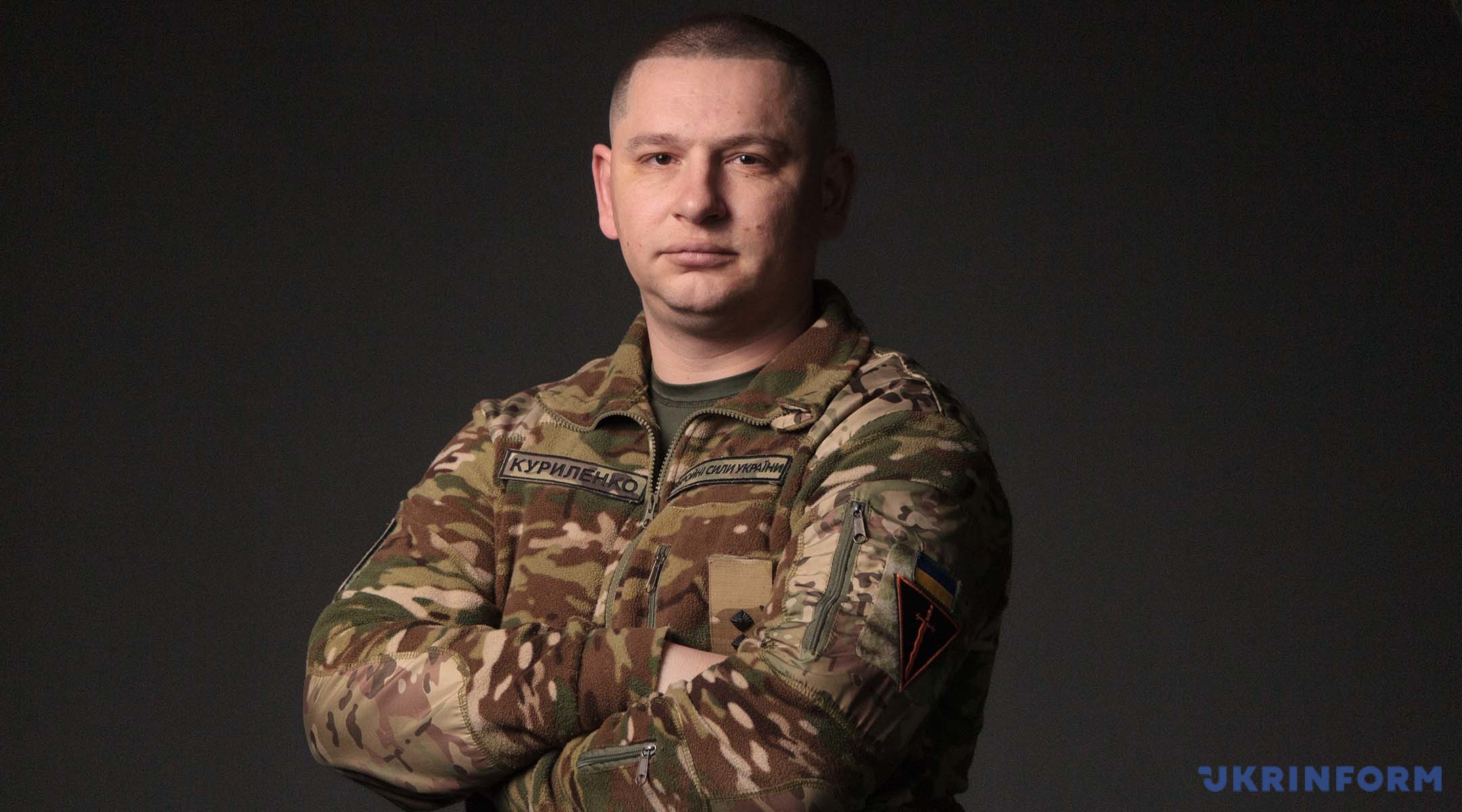
- We have both combat and non-combat positions. It seems to me that everyone who wanted to go has done so. Now there are people left who need to be pushed a little bit. The selection is like this: who would I like to have in the army, what could they do that will be cool, and what could they be passionate about. We need people whose eyes are burning. And this is very important. Because give me a thousand people tomorrow - I will need to talk to each one, understand what they are capable of and what they are passionate about, what they want, how they found out here at all ...
- You said that everyone who wanted to go has done so, and only those left who need to get pushed. What does “get pushed” mean?
- There is statistics which says that when a detachment goes into combat for the first time, (a detachment typically includes ten personnel), two fight, that is, 20 percent, and 80 percent are fearful. Of the 80 percent, someone is shaking, someone is trying to pass the ammunition, someone is sitting with ears covered. And the first to go into battle when another country attacks yours, again, number no more than 20 percent. Remember the personnel shortage in 2022 or 2023, it was the same 20 percent who went, whom we call patriots, those who are ready to take responsibility for their actions. And now they are sharing this story about “busification”, which is bullshit. What busification is about? Out of 100,000 people who were mobilized in one particular day, they showed one who "stood out". And I have a lot of soldiers serving in my regiment who showed up at recruitment and enlistment centers even after they had suffered wounds and recovered.
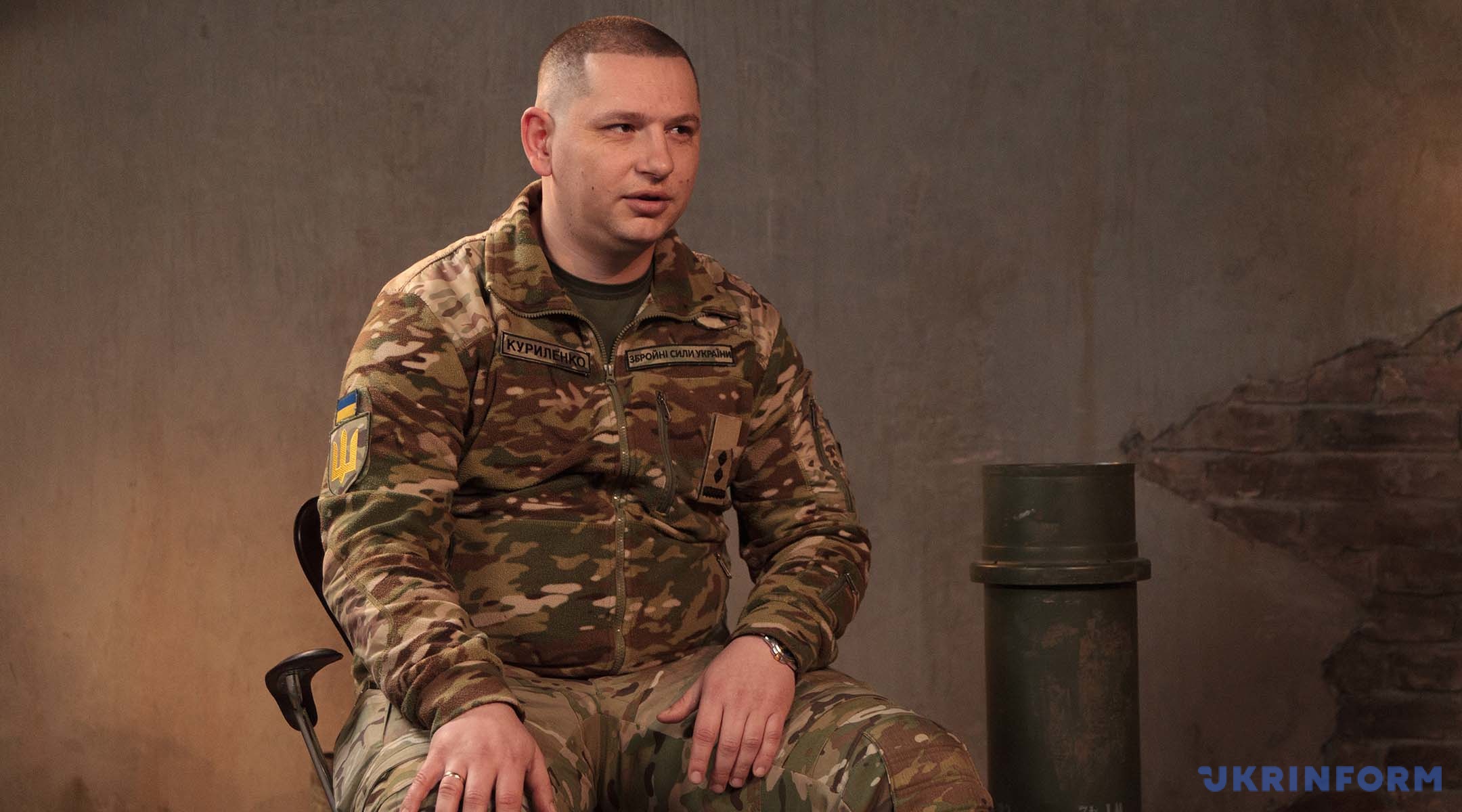
- You worked as an enlistment and recruitment officer at the time the full-scale invasion began. Would you tell us how it was like?
- Here is a soldier standing in front of you, the one who sustained four or five wounds, who is no longer physically fit for combat. He speaks, hands over his army draft notice - and you begin "showing off", like which norms or which legislation... Then let him write a letter of complaint to Putin: I request you not to attack us next year, because our legislation will change a little bit to make it more democratic. Ninety-five percent of people are just waiting for the arrival of an army draft notice. Waiting in the sense that they don’t expect it will arrive actually. But when it does arrive, they say: well, we have to go to war, it is my time to take up arms. Listen, such people need to be reached out, this is where enlistment and recruiting centers need to work better.
Here is a situation: a guy doesn't want to go, they drag him into a minibus, and after just three hours this story is already circulating in all Telegram channels and news feeds. That is, one such incident is multiplied by a thousand, hyped up, supplemented with comments, and here it is: people are defamed before the situation is sorted out. Another situation: here is a soldier, he is approached, issued a draft notice and requested to visit an enlistment and recruitment center to get his personal data updated as prescribed by the current legislation. It is clear that, in the future, he will be issued a mobilization order, that’s for sure, because a mobilization campaign is going on in the country, the country is a war. And he says: no, I will not go. And he starts to run away. And where does the legislation stipulate that a citizen has the right to run away?
- Russia’s propaganda machine is manipulating facts about mobilization in Ukraine. Is this consistent with reality, based on your experience?
- In no way is this consistent with reality. I came to work for an enlistment and recruitment center already as head of the department for the registration of soldiers and sergeants in reserve. There are great professionals working there, really, and the registration work is organized perfectly well. It was here where Mr Fedorov came to test drive, to see how we could better improve “Oberih” – the system for the registration of military personnel, which has been put in place (we discussed how this procedure can be improved at the Pechersk District enlistment and recruitment center, with my participation). We have “Reserve+”, “Army+” – derivatives of Oberih. Therefore, there is nothing bad I can say about it at all.
Are there problems with corruption components in individual enlistment and recruitment centers? Of course, there are. Someone can try to bribe someone, and there will be people who are ready to be bribed. Well, this is not a problem of organization, but of worldview. A more law-abiding society is needed to solve this problem. Here, it needs to be to instilled in the new generation that this is not appropriate... The problem with the enlistment and recruitment system is that we allowed the Russian propaganda machine to brand it bad. And the fact that the system is here to remind, using all the means available, that when the country is at war, we all are obliged to defend it, that we once took an oath of allegiance, that our Constitution obliges us to defend the independence of Ukraine – it is not their problem. This is the problem of those people who forget about it, are unwilling to understand it.
- The Russian propaganda exploits the narrative that the majority of the Armed Forces of Ukraine personnel are speaking Russian, and this narrative is often picked up by those civilians who are reluctant to learn the Ukrainian language. What are your thoughts about this?
- The Russian propaganda machine… It is working very effectively, really. I wish I would shoot them all, if I could... They threw in phrases, like: "It doesn’t matter what language I speak defending Ukraine". But it does matter much, it matters very much what language you speak defending Ukraine. Because all those who speak "Russian" did not have Russian classes at school. In the Ukrainian army, you are obliged to speak Ukrainian - this is the element that reminds you of what the Russians are trying to kill. The Russians are trying to kill our culture, our Ukrainian essence. They need a vassal country that is Russified and performs solely the functionality imposed by the Russian Federation...
- Have you always been Ukrainian-speaking?
- Yes.
- Where are you from?
- Chernihiv region.
- When Russian-speaking military personnel come to you, what are you telling them?
- I say: we will study Ukrainian.
- So you are contributing to this that way?
- I am directly contributing to this. I say: learn Ukrainian. Here is an example: I had a Russian-speaking squad leader, Taras, aged approximately 43 years old. I say: Taras, let's learn. He instructed himself to speak Ukrainian everywhere and all the time. It finally turned out that he can speak Ukrainian quite well, and it took him just half a year to switch completely - to switch to it very easily. I also have a sergeant major - he has been Russian-speaking all his life, but we talked, well, you understand... This is an example for everyone to emulate. And Misha switched to Ukrainian brilliantly, I am grateful to him for this. When such people do this, it tightens things up. I am ready to contribute. We need to accept that, when in Ukraine, we must speak Ukrainian, just like speak Czech when in the Czech Republic, Polish when in Poland, Russian when in Russia.
- I also want to know your assessment of the current situation at the front line. How do you assess it generally?
- The overall situation at the frontline has not changed at all. My soldiers are currently being put under a lot of pressure with promises of a soon ceasefire deal and ultimately a peace deal. It's like this: well, I'm sitting in a trench, I'm going to go into combat tomorrow or take soldiers into combat. And here the news comes: "Key negotiations on a 30-day ceasefire deal will take place tomorrow." And I am going into combat tonight, and think to myself: maybe I shouldn't have gone there. General information - information pressure, incredibly high. And my only stance on this all is like: come to terms and communicate with society, report on your moves, but do it as appropriate. When you are saying that negotiations will take place tomorrow, which will pave the ground for further progress on the path to a ceasefire deal and ultimately to an end to the war, then add that this process is not going to end there, but will be long lasting, incredibly difficult, that there will be escalations, that this has nothing to do with frontline fighting. So that the soldier understands that just as he fought the enemy yesterday, he is fighting the enemy today and will fight tomorrow. And he needs to take up arms, just like he did yesterday and will do tomorrow, and destroy each and every enemy boot that steps on his land.
- What does victory signify to you?
- I have an integral independent country: 24 regions and the Autonomous Republic of Crimea. I am fighting for its integrity, I do not need either Kursk or Belgorod. I need my free, independent Ukraine within its internationally recognized borders. I want Ukrainism to be present in its essence in every citizen. I need a country that, like me and my unit, develops the potential of people, understands that personnel are not measured quantitatively, but qualitatively, that this is our wealth.
When they say that our wealth is people, it sounds pathetic, but no one explains what this is about. After all, this is what comprises our potential, these people who will not watch TikTok today, but instead will engage in creating an energy efficiency program for a whole city, for example, the one that will save 70 percent of each citizen’s budget, then patent it and display it to the whole world. And if you make it into a government-funded program, your country will earn additional revenue from this, and you will invest in your children again so they be smarter than we are. This is our true treasure - people who allow themselves to devise and invent.
- For you, war is...?
- An element to achieving the desired.
- What motivates you to wake up every morning?
- These cool ideas I invented last night.
- What is your greatest fear?
- That someone will someday tell me that everything is in vain.
- What does freedom mean to you?
- Freedom is the highest value. This is what I want my child to live for in Ukraine.
- What moment in life do you consider the happiest?
- My child... I adore my son, my wife, my family, and I enjoy every moment with them by my side.
- Who is your hero?
- There are so many of them, incredibly many.
- What is your greatest reward in life?
- The greatest reward is life itself and it's great to live it. I will definitely become a grandfather who will not be ashamed in front of his grandchildren. The reward for me is to finish the work I started.
- What will be the first thing you do after Ukraine wins?
- I will line up all unit and thank them for this victory.
- I hope this moment will come as soon as possible. Thank you.
Interviewed by Diana Slavinska
Photo: Kyrylo Chubotin
